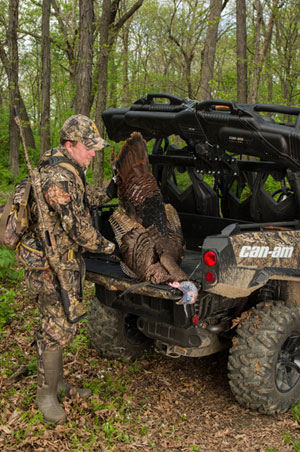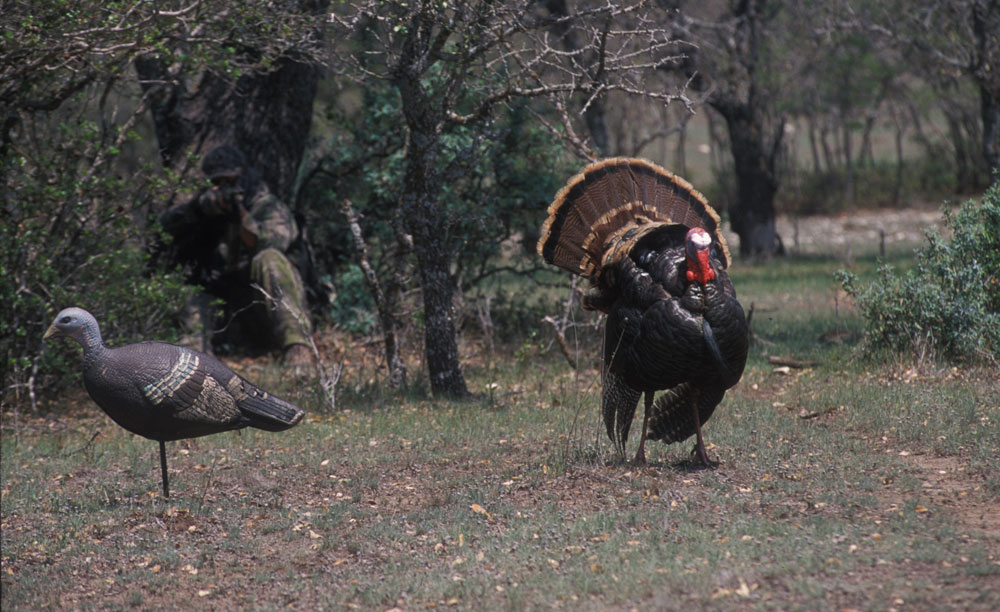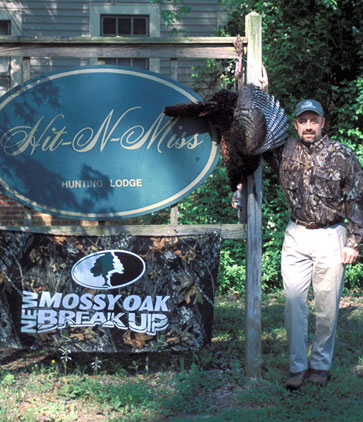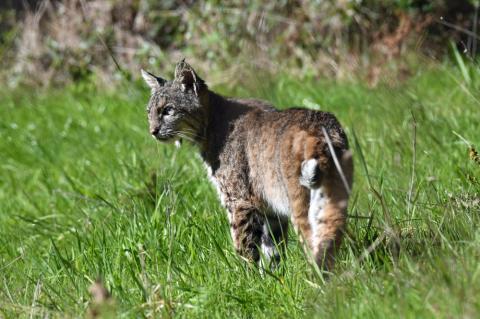Bob Humphrey
Admit it: We love them, but turkeys can try our patience and test our mettle at times. The somewhat troublesome birds are typically referred to as “uncooperative.” Then there are those that are downright mean. They’ll lead you on and make you feel like a fool. They’ll try your patience, then make you expend every shred of patience you possess. They can turn the most battle-weary veteran of the turkey woods into a trembling nimrod.
They’re often given individual names, some not so flattering; but collectively they are known simply as Bad Birds. Sooner or later you’ll encounter them, and they’ll rattle your confidence to the bone. But the more interactions you have, the more you’ll learn they can sometimes be beaten. Here are a few examples of the more nefarious characters, and some humble advice on how to handle them.
The Sheik
Our first bad boy is the classic henned-up tom. He has his harem and feels no need to leave a bird (or birds) at the hand for a perceived one in the bush. Call all you want. He’ll double and triple gobble in response but he’s sticking with the girls. Often the best tactic in this scenario is discretion. Go find a more cooperative adversary. But if you’re as stubborn as him, you have a few options.
One option that works better with less visibility is to play the jealousy card on the boss hen. He’s not leaving her but if you crank her up she might come over to run you off, and lead her suitor right into the trap. The first step is to get her fired up with some aggressive cutting and yelping. You can usually tell right away if it’s working because the more you call the more and the louder she’ll answer. There’s still a 50 percent chance she’ll take Old Tom the other way but you can’t win if you don’t gamble.
If neither of those work you’re next best strategy is probably back to discretion. Move on in search of a more cooperative bird. But don’t be afraid to come back later, either in the day or the season. Love is fickle and those hens will eventually drop the old boy like a bad habit, leaving him looking for love.
The Zombie
Our next contestant might have hens or he might be alone; it doesn’t matter. In fact, not much of anything matters. He’s stuck in a strut zone. He’ll walk back and forth over the same ground, strutting and gobbling. And unless you run out and chase him off, there’s almost no force on earth, including a real hen that can make that bird break stride until he’s good and ready. I’ve watched birds parade back and forth for hours.

That hints at one tactic: patience, the kind of patience most hunters don’t possess. I recall a Florida hunt many moons ago when I had a randy Osceola launch from the limb and sail down to his potential demise in the first few minutes of the first morning of the hunt. “Too easy,” I told myself, and let the bird walk. It wasn’t until the next morning that I found another gobbler. Unfortunately, he was strutting in the middle of a 200-acre pasture, all by himself. I crawled in among the branches of a toppled tree and called to no avail as I watched that bird strut, for four hours. But when he finally broke, he came straight to me.
I also had a somewhat similar scenario, but in the dense woods of western Massachusetts. By listening carefully I could tell when he was coming toward me and when he was walking away. Each time he made his turn and started away I crept a little closer. It took the better part of an hour but I finally got within gun range of the close end of his strut zone and had only to wait for his return trip.
The Wanderer
 The book says that turkeys should fly out of the roost, hear your calling, see your decoys (or both) and come to you. Or they’ll hit the ground, strut around then move toward the nearest open area or feeding ground. But turkeys don’t read books. Occasionally you’ll find a bird that just has a wanderlust and the minute his feet hit the ground, he’s off. He might gobble once on the ground nearby, but the next time you hear him he’s nearly out of earshot. Even the baddest bird has an Achilles’ heel. You just need to find it, and the Wanderer’s is that he usually roosts in the same tree, or bunch of trees.
The book says that turkeys should fly out of the roost, hear your calling, see your decoys (or both) and come to you. Or they’ll hit the ground, strut around then move toward the nearest open area or feeding ground. But turkeys don’t read books. Occasionally you’ll find a bird that just has a wanderlust and the minute his feet hit the ground, he’s off. He might gobble once on the ground nearby, but the next time you hear him he’s nearly out of earshot. Even the baddest bird has an Achilles’ heel. You just need to find it, and the Wanderer’s is that he usually roosts in the same tree, or bunch of trees.
The first such bird I killed was in Alabama, and I was little more than the trigger man. My guide had been trying to kill him - through his hunters - for weeks. Apparently he saw something different in me. I’d like to think it was my exceptional skill as a turkey hunter but I suspect it was more a case of me being just dumb enough to do what he proposed. So we set up in a timber head at 2:30 in the afternoon, and every 30 minutes or so I would pick up my slate and scratch out a few soft purrs. Had he not shock gobbled to a crow flying overhead, I never would have known the gobbler was coming back to roost. I shot that bird at 7:45 p.m. I’ve killed several more birds of similar ilk by slipping in waaay before daylight and sitting silently, waiting for them to fly down, often within shotgun range.
Those are but a few of the characters we collectively refer to as “Bad Birds.” There are countless others, but the tactics I employed to beat them are versatile enough that they often apply to other, equally challenging situations. I honestly believe that I’ve had more than my fair share of bad birds. I wouldn’t say I seek them out, but when I find them, I can’t leave them until one of us is beaten. And after more than 40 years of turkey hunting I still find birds that beat me. I cuss them out at first, but when reason returns I bless them for making me a better turkey hunter.



























